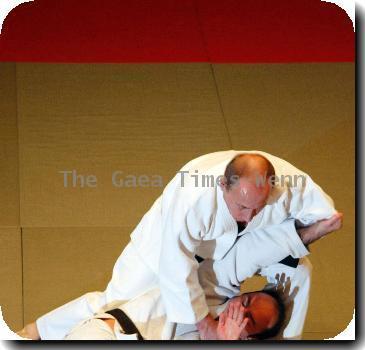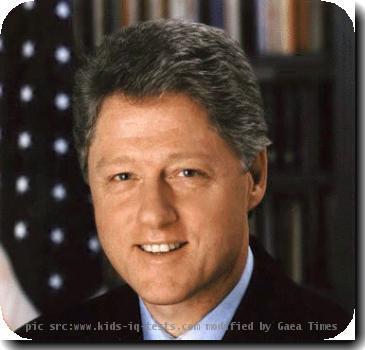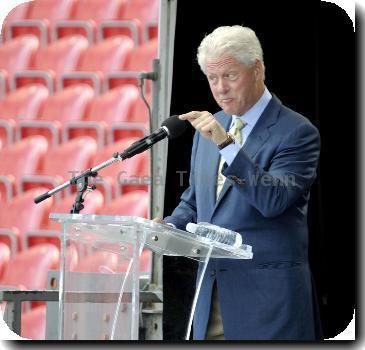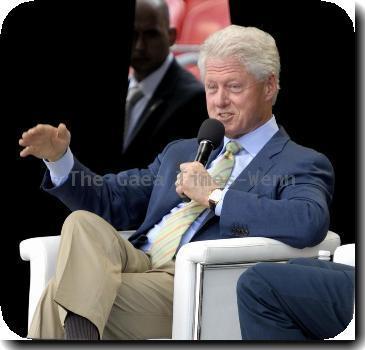US removes sanctions against Russians accused of illicit links to Iran’s nuclear program
By Robert Burns, APFriday, May 21, 2010
US lifts sanctions against Russians linked to Iran
WASHINGTON — The Obama administration on Friday removed sanctions against three Russian organizations the U.S. had previously accused of assisting Iran’s effort to develop nuclear weapons.
Penalties against a fourth Russian entity previously accused of illicit arms sales to Syria also were lifted.
The timing of the decisions, published in Friday’s Federal Register but not otherwise announced by the State Department, suggested the possibility of a link to U.S. efforts to win Russian support for a proposed new U.N. Security Council resolution expanding sanctions against Iran over its nuclear program.
State Department spokesman P.J. Crowley denied that the decision to lift the sanctions was meant to win Russian support for additional Iran sanctions. He said, however, that it reflected the fact that “Russia has over time adapted its approach to Iran” and has shown restraint in certain arms deals with Tehran.
“So we felt that as Russia shared our concern about Iran and was willing to support the kinds of arms restrictions that are in the draft (U.N.) resolution, we felt confident that we could remove these penalties while protecting our non-proliferation interests,” Crowley said.
While the U.S. did not lift the sanctions in exchange for Moscow’s support in the U.N., the two actions “are connected in the sense that clearly the actions Russia has taken over time have demonstrated that they take the situation with Iran seriously,” he added.
When Secretary of State Hillary Rodham Clinton visited Moscow in March, Russian Prime Minister Vladimir Putin publicly complained to her about a range of U.S. government sanctions against Russian companies. In private, Putin and other Russian officials raised with Clinton the specific issue of removing U.S. sanctions on Russian entities accused of supporting Iran’s nuclear and missile programs.
Two of the Russian entities — Dmitri Mendeleyev University of Chemical Technology and the Moscow Aviation Institute — had been sanctioned in January 1999 under a 1994 executive order authorizing such action. The order was aimed at organizations determined to have contributed to a foreign country’s development or production of weapons of mass destruction or missiles capable of launching such weapons.
When the administration of former President Bill Clinton announced those sanctions, then-Energy Secretary Bill Richardson said the two institutions “directly support Iranian efforts to develop nuclear weapons.”
At the time, the Russian government denied such support for Iran.
U.S. sanctions imposed in October 2008 against Russian state arms trader Rosoboronexport for alleged illicit assistance to Iran’s nuclear program also were lifted by the State Department on Friday.
Rosoboronexport said at the time that it had sold only defensive weaponry to Iran.
Earlier this year, Anatoly Isaikin, head of Rosoboronexport, said Russia still considers Iran a valuable arms customer. That was a reassuring message to Tehran despite recent indications of Moscow’s support for tougher Western sanctions.
Isaikin told a news conference in late January that no international agreements bar Russia from selling weapons to Tehran.
Russia signed a 2007 contract to sell the powerful S-300 air defense missiles to Tehran but so far has not delivered any. No reason has been given for the delay, but Israel and the United States strongly objected to Iran obtaining the long-range missiles, which would significantly boost the country’s air defense capability.
The State Department on Friday also lifted sanctions against Tula Instrument Design Bureau in April 1999 for providing anti-tank guided missiles to Syria.
Tags: Bill Clinton, Eastern Europe, Europe, Foreign Policy, Iran, Middle East, Moscow, North America, Nuclear Weapons, Russia, Syria, Tehran, United States, Vladimir Putin, Washington, Weapons Administration, Weapons Of Mass Destruction



